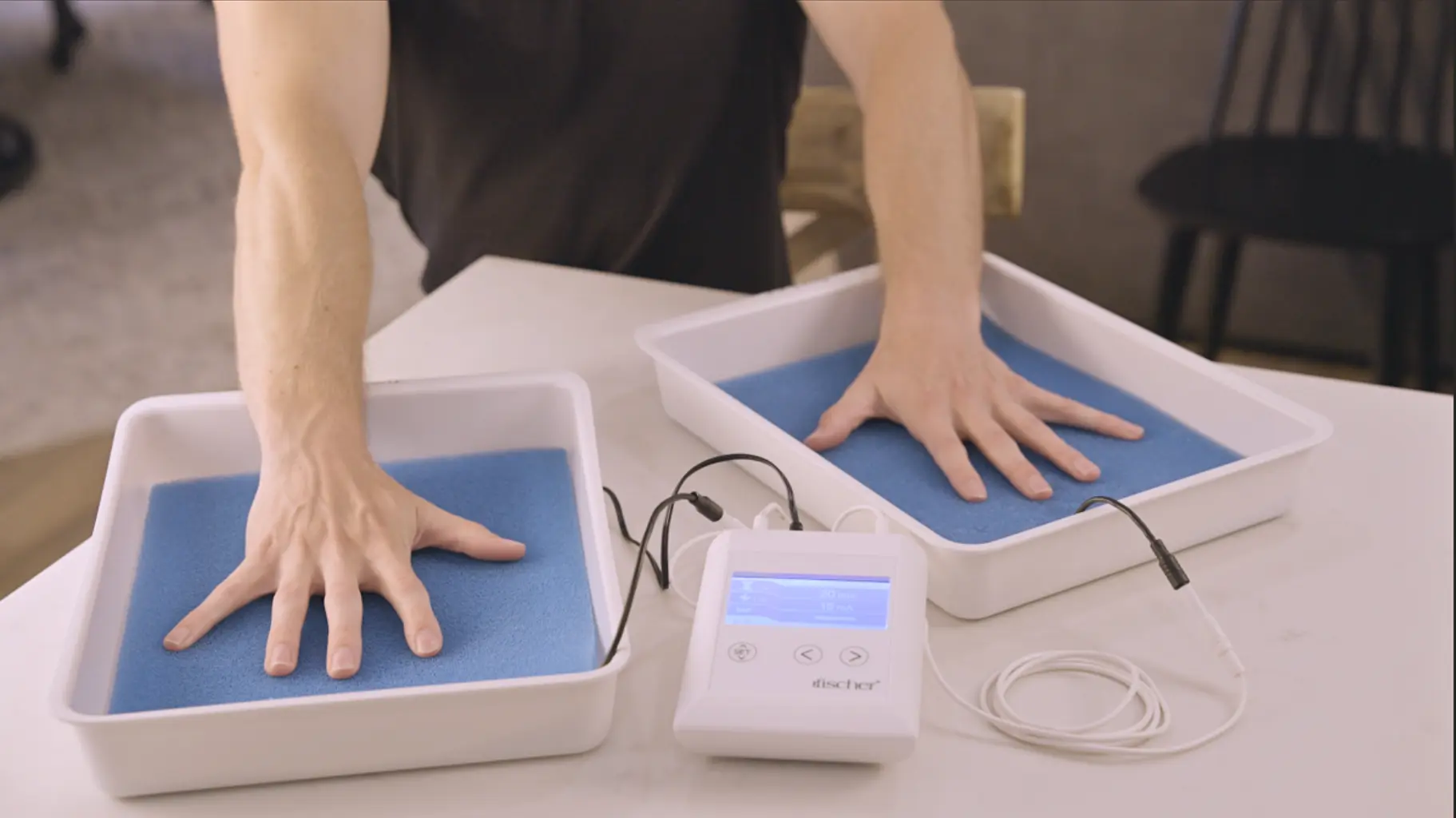Comprehensive Guide to Sweaty Hands Treatment: Proven Dermatology Techniques
Comprehensive Guide to Sweaty Hands Treatment: Proven Dermatology Techniques
Blog Article
Recognizing the Root Reasons of Excessive Sweating and Its Effect on Day-to-day Live
Too much sweating, also called hyperhidrosis, is a problem that affects a substantial section of the populace, yet its underlying causes and ramifications on daily functioning stay rather enigmatic. While it is frequently comprehended as a physical action to control body temperature level, the triggers for too much sweating can differ widely amongst people, encompassing not just physical aspects yet additionally psychological and emotional components. Furthermore, the influence of this problem extends beyond plain pain, frequently affecting social interactions and total lifestyle. By diving right into the root triggers of hyperhidrosis and exploring its multifaceted impacts, a deeper understanding of this pervasive problem can be gotten, shedding light on the intricacies that people facing extreme sweating browse each day.
Physiology of Sweat Glands
The law of sweat production, an important physical procedure, is mostly controlled by the task of gland distributed throughout the human body. Sweat glands are categorized into two major types: eccrine and apocrine glands. Eccrine glands are one of the most various and are located in nearly all areas of the body. They play an essential function in thermoregulation by producing a watery fluid onto the skin's surface, which helps and evaporates cool down the body down. In contrast, apocrine glands are focused in locations rich in hair follicles, such as the underarms and groin, and their secretions are thicker and milklike in appearance.
When the body temperature level increases, either due to exercise, high temperature levels, or psychological tension, the nerve system activates the sweat glands to generate sweat. This sweat is made up largely of water and electrolytes like sodium and chloride. The process of sweat production is necessary for keeping the body's internal temperature level within a slim, optimal variety, highlighting the essential role sweat glands play in human physiology.
Triggers for Excessive Sweating
In comprehending the origin of extreme sweating, it is important to recognize the triggers that can result in this physical action. Extreme sweating, likewise referred to as hyperhidrosis, can be motivated by numerous aspects, both physiological and environmental. One typical trigger is emotional stress and anxiety or stress and anxiety, which can stimulate the body's sweat glands to create even more sweat than is necessary for cooling. Physical effort, high temperatures, and spicy foods are also recognized to activate too much sweating in individuals prone to this problem. In addition, specific clinical problems like diabetes, menopause, or hyperthyroidism can add to extreme sweating too.
Furthermore, medicines such as some antidepressants, opioids, and certain supplements can also act as triggers for hyperhidrosis. Understanding these see this triggers is necessary in taking care of extreme sweating properly - Sweaty hands treatment. By determining and addressing the particular triggers that prompt excessive sweating in a specific, doctor can establish tailored treatment strategies to relieve this condition and boost the individual's quality of life
Medical Conditions Associated
Related to excessive sweating are numerous medical conditions that can exacerbate this physical response. One common condition is hyperhidrosis, a problem defined by unusually raised sweating that goes beyond the body's thermoregulatory needs. This can manifest in focal locations like the hands, soles, underarms, or face, affecting you can try here a person's top quality of life due to social humiliation and pain.
In addition, endocrine disorders such as hyperthyroidism, diabetes, and menopausal warm flashes can also lead to excessive sweating. Hyperthyroidism creates an overproduction of thyroid hormones, speeding up metabolic rate and activating sweating.
Additionally, infections like tuberculosis, HIV, and endocarditis have actually been associated with night sweats, a common sign understood to interrupt rest and impact overall wellness. These medical problems highlight the varied variety of underlying factors that can add to excessive sweating, demanding detailed analysis and management by health care professionals.
Psychological and Mental Variables

Influence on Social Interactions
Excessive sweating can have extensive results on a person's ability to involve conveniently in social interactions. The noticeable indicators of sweat stains or wet spots on clothes can cause humiliation and self-consciousness, triggering individuals to withdraw from social circumstances. This withdrawal can influence partnerships, limitation social tasks, see here now and hinder specialist and personal development.

Moreover, the stress and anxiety and self-worth concerns coming from too much sweating can impact interaction and interpersonal abilities. People might have a hard time to concentrate on conversations, join group tasks, or express themselves with confidence. This can result in feelings of isolation and loneliness, as social links become challenging to preserve.
Verdict

While it is frequently recognized as a physiological response to control body temperature, the triggers for excessive sweating can vary extensively amongst people, incorporating not just physical factors however emotional and additionally emotional elements. By delving right into the origin triggers of hyperhidrosis and discovering its multifaceted impacts, a deeper understanding of this pervasive problem can be gained, losing light on the complexities that people grappling with extreme sweating navigate on a daily basis.
Physical physical effort, high temperatures, and spicy foods are additionally recognized to trigger extreme sweating in individuals susceptible to this problem. By identifying and attending to the details triggers that motivate too much sweating in a specific, health care companies can develop personalized treatment plans to alleviate this problem and improve the individual's high quality of life.
Too much sweating can have profound effects on a person's capability to involve easily in social communications.
Report this page